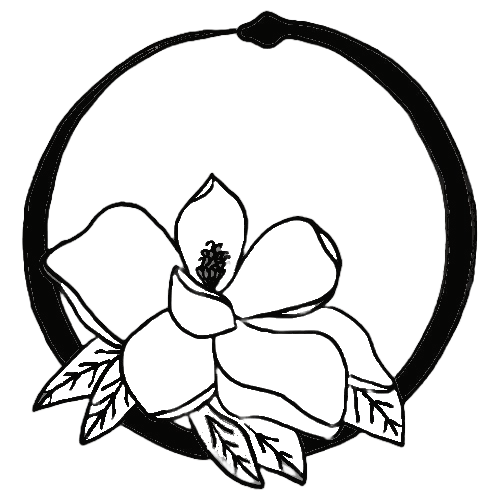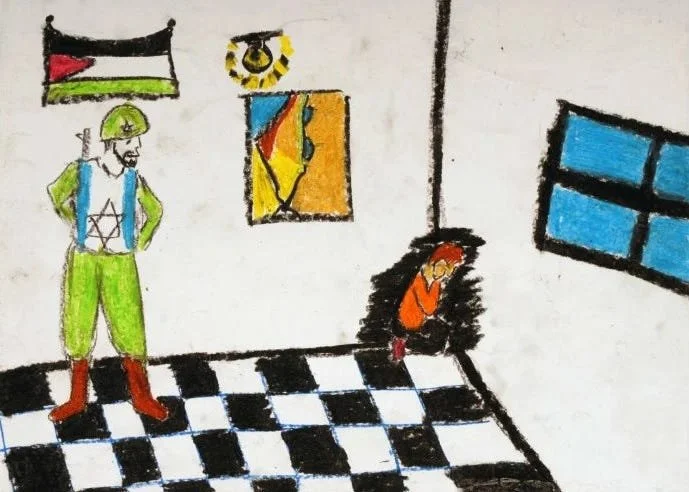Becoming a death doula in the midst of a genocide
I’ve been trying to wrap words around these feelings for months and each time it feels like a child’s drawing, a modest gesture toward the real thing...but liberation demands we say it however we can.
I want to express the tremendous discord I’ve been experiencing the last several months as I’ve begun my practice in death work in the midst of the live-streamed genocide in Gaza. In my death doula practice, I have been learning how to support others in contemplating, preparing for and meeting death. So much of my work is about normalizing the experience of death, helping us reckon with its inevitability and learning how to integrate that into our lives in a meaningful way. But that work doesn’t apply in the context of genocide, or at least not in the way that I know how. The experience of genocide should not be normalized, it need not be inevitable. And so I have grieved, knowing that it is a privilege to grieve. It is a privilege because I have the safety and comfort to do so, but it is also a privilege because I have access to the tenderness required to feel.
In the culture I inhabit in the U.S, there is so much repression around grief (and many other emotions). People are numb to their inner lives. I am not wholly exempt from this, but I’ve been called “sensitive” for as long as I can remember and have deepened into a practice of feeling in my adult years. When I have watched videos of mothers trembling uncontrollably as they embrace their dead children, groups of men stripped and blindfolded, surrounded by heavily armed soldiers and on-the-ground journalists posting goodbyes at night in case we don’t hear from them again in the morning, I have felt panic, fury, despair, groundless terror, and, eventually, wild grief. In this grief, I have found the depth of my love for the Palestinian people. My heart has been breaking repeatedly, but I am grateful to have a heart that loves.
I think a lot of people in the West are so cut off from death that we cannot comprehend the significance of the horrors happening in Palestine (or any of the other places that are experiencing genocide right now). It is not simply a question of being killed by a bomb or a bullet, there are thousands of people who are sustaining life-long injuries and others who are becoming sick with no hope for treatment and starving with no hope for food. It is a disabling and a slow, manufactured death. There is a term, necropolitics, that refers to the way cultures decide who gets to live and for whom it is okay to die. According to various qualifiers such as nationality, skin tone, sexual orientation and gender presentation, some groups are portrayed as more disposable than others. In the case of Israel/Palestine, it’s quite evident when looking at the language that the mainstream media uses to describe either side. The U.S. narrative has insisted that we accept the annihilation of one group (composed of “terrorists”) as a precursor to the safety of another. This is a false dichotomy.
We do not need to live in a world where we are numb or willfully ignorant to the brutality we enact on each other, but in order to change that, we must be willing to become aware and to feel how that awareness lives in us. Right now, Gaza is the most dangerous place in the world to be a child. Every life is a world of experiences, dreams, loves. Every single life and every single death matters. It is particularly important that we pay attention to the ones that are framed as if they don’t.
As a last thought I want to say that when I think of the possibility for change through death awareness, I find a glimmer of hope. If we can sensitize ourselves to the reality of death perhaps we can treat it with more respect. I am heartened by the mycelial nature of the deathwork movement right now. May our loving ancestors give us strength to keep on.
In closing, I want to honor the 30,000 lives lost with the poetry of a couple of martyrs, Refaat Alareer and Hiba Abu Nada. Refaat was a professor and a poet. Hiba was a poet, novelist and nutritionist. May they know we are still telling their story.
If I must die,
you must live
to tell my story
to sell my things
to buy a piece of cloth
and some strings,
(make it white with a long tail)
so that a child, somewhere in Gaza
while looking heaven in the eye
awaiting his dad who left in a blaze—
and bid no one farewell
not even to his flesh
not even to himself—
sees the kite, my kite you made, flying up
above
and thinks for a moment an angel is there
bringing back love
If I must die
let it bring hope
let it be a tale
- Refaat Alareer
Each of us in Gaza is either witness to or martyr for liberation. Each is waiting to see which of the two they’ll become up there with God. We have already started building a new city in Heaven.
Doctors without patients. No one bleeds. Teachers in uncrowded classrooms. No yelling at students. New families without pain or sorrow. Journalists writing up and taking photos of eternal love. They’re all from Gaza.
In Heaven, the new Gaza is free of siege. It is taking shape now.
- Hiba Abu Nada
And finally, I write this also thinking of Aaron Bushnell, a member of the U.S. Airforce who died yesterday after he self-immolated in front of the Israeli Embassy in DC. His last were “Free Palestine” and “I will not be complicit in genocide.”
Drawings are from an exhibit of Palestinian children’s artwork that was cancelled at the Oakland Children Museum in 2011. Sourced from electronicintifada.net



